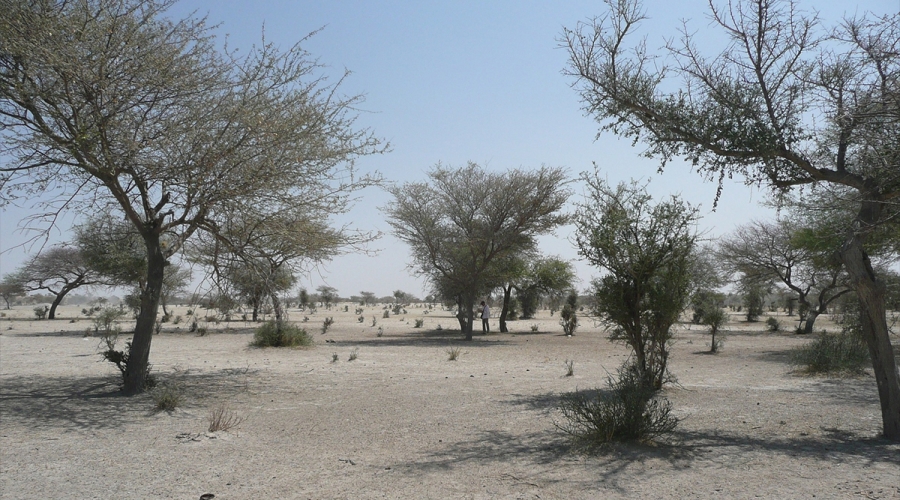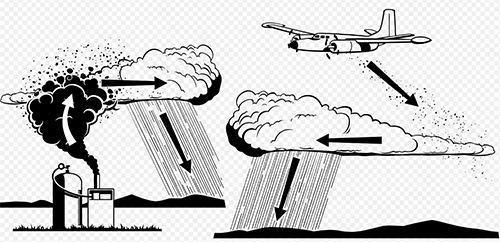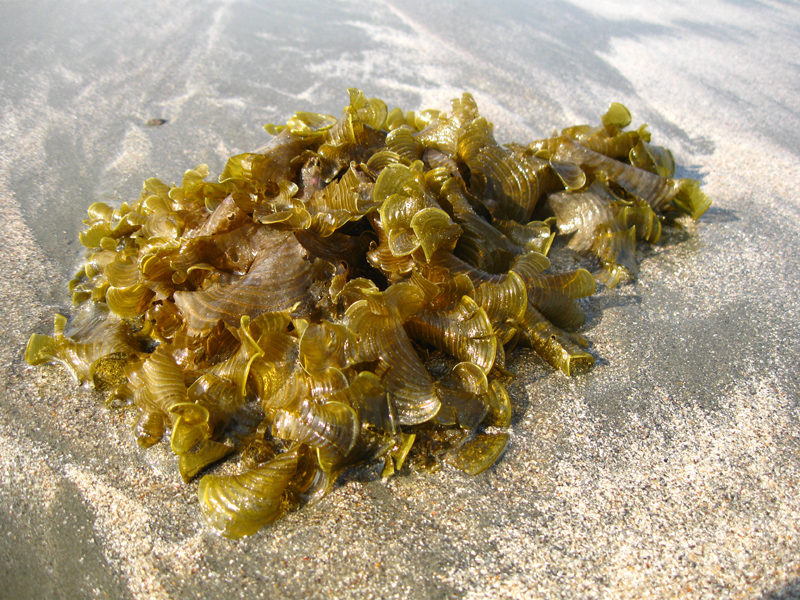The Dark Side of Geoengineering - Why It’s Bad for Africa

Geoengineering promises quick fixes to climate change, but its dangerous, unproven technologies could deepen global inequalities and wreak havoc on vulnerable regions like Africa. How then should Africa approach geoengineering before it floods the continent?
In the coming years, we will witness a scene that has played out countless times on our continent. An African president, his face beaming with pride, will stand before his people in a location beset with droughts and proclaim victory. Flanked by aides fidgeting excitedly, he will reveal that he has secured millions of dollars in funding for cloud seeding.
“We will now use a technology called cloud seeding to order rain whenever we want it!” The President will declare, framing the project as a victory for his administration.
Somewhere at the back of the crowd, there will be several white faces. Expressionless men in khaki pants and safari boots. These are the puppet masters, the donors, the self-proclaimed saviors.
Later, when the cameras turn their way, these men will offer practiced soundbites. They'll declare the cloud seeding project a “victory for innovation and climate resilience technology.” With false humility, they'll proclaim that their millions in aid are “a worthy investment into the resilient people of Africa.” Their words will drip with paternalism, with the unspoken belief that Africa needs saving and that they alone possess the means to do it. This will signal continuation of a long and painful history, one where Africa serves as the laboratory for the world's most dangerous experiments.
If the above scenario ends up unfolding, it will signal a dangerous shift. Cloud seeding is a weather modification technique where airplanes disperse substances like silver iodide into clouds to stimulate rain or snow formation. Dubai does it regularly. Some blamed cloud seeding for the Dubai floods. On April 16, 2024, the United Arab Emirates experienced severe flooding, primarily impacting the cities of Dubai and Sharjah, as well as the northern emirates and various regions of Ras Al Khaimah. While there was no evidence that cloud seeding caused this floods, it showed how this technology remains steeped in a cloud of uncertainty.
Am on a mission to awaken and empower Africa through knowledge. If you would like to support my work, you can do so through: Paypal: This email address is being protected from spambots. You need JavaScript enabled to view it. Mobile money transfer number through Worldremit or MPESA: +254795591751
Click here to see exactly what your money will do:
https://environmentalafrica.com/donate
The Dangers of Geoengineering
Geoengineering, also called climate engineering, refers to various large-scale methods for deliberately altering Earth's natural environmental systems - including the oceans, land, and atmosphere - to directly combat climate change. Techniques like solar radiation management (SRM), cloud seeding, and carbon capture are often touted as critical geoengineering tools. However, these methods come with serious ethical, environmental, and socio-political concerns especially in Africa.
Geoengineering projects will end up disproportionately benefiting the foreign companies controlling them. In early 2024, a Reuters investigation revealed that wealthy countries have provided climate funding to developing countries in recent years, but often with conditions that benefit the lending nations, such as high interest rates or strict requirements. That is a precedent that will apply even more with geoengineering because this is a niche sector controlled by a few non-African entities.
Without proper legislation, geoengineering could deepen socio-political inequalities, turning Africa into a testing ground for risky experiments that threaten both the environment and the people’s future. Indeed, Geoengineering rides on the belief that we can play god with forces beyond our comprehension. And as always, it is those at the bottom who will bear the weight of our hubris.
Unequal Impacts on Africa
USA, Europe, China and India have exacerbated climate change through their high, unsustainable greenhouse gas emissions. They should provide Africa with reparations not geoengineering that tethers Africa even further to them without addressing underlying climate change adaptation issues like revamping climate smart agriculture. By offering Africa cloud seeding, solar radiation management, carbon capture and stratospheric aerosol injection, they are tightening their control over us.
Geoengineering mirrors feeding malnourished communities fast food. That may fill the stomach for a moment, but it doesn’t address the deep, structural issues causing food insecurity. Cloud seeding can summon a brief downpour, but it leaves untouched the fundamental ecological imbalance, the same way fast food ignores the nutritional roots of the problem. It’s easier to chase quick fixes, like spraying the sky for rain, than to plant forests that would heal the land over generations.
Geoengineering technologies such as SRM – designed to reflect sunlight and reduce global temperatures – may or may not alter weather patterns, particularly rainfall. It’s a gamble that Africa can’t afford. Its heads or tails. If its tails, SRM projects could trigger massive droughts across Africa, leading to catastrophic consequences for agriculture and food security. African countries, many of which already face severe water shortages and food crises, could experience worsened conditions due to these interventions.
Moreover, certain African leaders could misuse geoengineering projects for personal gain. In countries where corruption remains a problem, corrupt elites might leverage geoengineering technologies as lucrative schemes, exploiting international climate finance mechanisms or selling access to African lands for carbon offset projects. These decisions would likely be made without proper public consultation or regard for the most vulnerable populations, thus exacerbating inequality.

Cloud Seeding Illustration. By DooFi, Wikimedia Commons
Some American States are fleeing from geoengineering
The U.S., which has experimented with geoengineering for decades, is now grappling with its potential risks, as exemplified by a recent bill passed in Tennessee. This legislation aims to prevent practices like solar radiation modification and cloud seeding, reflecting growing public concern about the dangers of climate manipulation. As other states like Illinois and Kentucky consider similar legislation, the U.S. is facing mounting pressure to address geoengineering's ethical, environmental, and governance challenges before these technologies advance further. Why then would Africa plunge into geoengineering when sections of the US are fleeing from it?
Environmental and Social Justice
A critical issue with geoengineering is the unilateral nature of its application. Wealthy nations, often the biggest polluters, might deploy geoengineering solutions in Africa without consulting or considering the needs of Africans. This form of environmental colonialism echoes past exploitations, where African lands, resources, and lives were treated as expendable. By pushing forward with geoengineering projects that could harm African ecosystems and livelihoods, powerful nations risk repeating the mistakes of the past – ignoring the sovereignty and voices of African people.
The fact that geoengineering technologies often come with immense financial backing from wealthy countries and corporations adds another layer to the injustice. Resources that should be directed towards climate adaptation, mitigation, and addressing the root causes of climate change could instead be diverted to high-risk technological interventions. This approach could further entrench inequalities, with Africa becoming a testing ground for unproven technologies that offer uncertain benefits to Africans at best.

Ocean fertilization seeks to hasten production of ocean algae. By DooFi, Wikimedia Commons
Sustainable alternatives to Geoengineering
Global Risks
Beyond Africa, geoengineering presents significant global risks. Climate systems are complex and interconnected, meaning that altering one part of the system could have unintended and potentially catastrophic ripple effects worldwide. For instance, solar radiation management could interfere with weather patterns in unpredictable ways, increasing the frequency of extreme weather events like hurricanes and floods. Moreover, technologies like ocean fertilization, which involves dumping iron into the ocean to create algal blooms that capture carbon, could have devastating effects on marine biodiversity, disrupting entire ecosystems.
Another global concern is the possibility of ‘termination shock.’ If SRM projects were suddenly stopped due to political instability, war, or societal collapse, the immediate cessation of solar shielding could cause a rapid and intense rise in temperatures, leading to even more drastic climate disruption than if no interventions had been taken at all.
Sustainable Alternatives
Instead of relying on geoengineering, Africa and the world should focus on sustainable and natural solutions to combat climate change. Reforestation, agroecology, and renewable energy development are proven methods that work in harmony with the environment rather than against it. Reforestation helps restore ecosystems, sequester carbon, and improve biodiversity, while agroecology strengthens food security and resilience by promoting diverse, sustainable agricultural practices. A concrete example is the Great Green Wall initiative that seeks to restore 100 million hectares of degraded land across the Sahel region by planting trees and vegetation, helping to combat desertification. It also seeks to improve food security, create jobs, and promote sustainable livelihoods for communities in this region. An area larger than ten of Africa’s smallest countries has already been restored thanks to the Great Green Wall Initiative. Such an initiative not only address the root cause of climate change but also boosts climate resilience as it creates sustainable livelihoods.
Conclusion
The proponents of geoengineering will speak of necessity, of the need for drastic action in the face of looming climate catastrophe. But we must remember that necessity has always been the tyrant's plea. It was necessity that justified the slave trade, necessity that excused the scramble for Africa, necessity that rationalized apartheid.
Geoengineering may seem like a quick fix to the urgent problem of climate change, but its potential costs far outweigh the benefits, particularly for Africa. These large-scale technological interventions threaten to exacerbate existing inequalities, disrupt ecosystems, and cause unintended global consequences. The path forward must prioritize sustainable, equitable solutions that empower vulnerable regions like Africa, rather than using them as a testing ground for dangerous and unproven technologies.
Let us therefore reject the false promise of technological salvation. And demand real solutions that include reforestation that restores our land, agroecology that nourishes our soil, clean energy that powers our present without poisoning our future.
Let us build climate resilience from the ground up, to empower our communities with knowledge and resources, rather than making them dependent on technologies they neither produce nor control. The path forward demands that we see ourselves not as masters of nature, but as part of it – intimately connected to the land, the water, and the air that sustains us all. We are stewards of nature, not its conquerors.
This email address is being protected from spambots. You need JavaScript enabled to view it.
I seek to awaken and empower Africa through knowledge. If you would like to invest in my work, you can do so through:
Paypal: This email address is being protected from spambots. You need JavaScript enabled to view it.
Mobile money transfer number through Worldremit or MPESA: +254795591751
Click here to see exactly what your money will do:
https://environmentalafrica.com/donate

 En
En  Fr
Fr  Ar
Ar